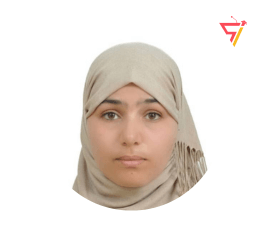Scholars International Conference on
Physics and Quantum Physics
THEME: "Highlighting innovations and challenges in the field of Physics and Quantum Physics"
 25-26 Mar 2024
25-26 Mar 2024  Barcelona, Spain
Barcelona, Spain THEME: "Highlighting innovations and challenges in the field of Physics and Quantum Physics"
 25-26 Mar 2024
25-26 Mar 2024  Barcelona, Spain
Barcelona, Spain 
Hassiba Benbouali University of Chlef, Algeria
Cylindrical Dust Acoustic Shock Waves in a Self-Gravitational Magnetized Dusty Plasma Compared with Black Hole Plasma
Moufida Laghbeche is a new researcher in theoretical physics. She completed her master's degree under the supervision of Mr. A. Berbri, and her thesis topic was on dust acoustic shock waves in magnetized dusty plasma (2022). Now she's preparing for a PhD competition. During her studies at three different universities, she studied most theoretical physics topics. Her research interests lie in astrophysics, specifically in understanding the behavior of dust particles in different fields of physics.
Understanding the intricate interplay between self-gravitational effects and shock waves in dusty plasma is paramount to unraveling the mysteries of cosmic phenomena. This study investigates the propagation and characteristics of dust acoustic shock waves (DAShWs) in a self-gravitational magnetized dusty plasma with kappa-distributed electrons and ions. The need to understand the behavior of shock waves in complex plasma environments and their potential similarities with astrophysical phenomena, such as black holes and various hurricanes that occur in the environment and the universe, motivated this investigation.
To explore the dynamics and collisions of dust acoustic shock waves in the specified plasma environment, this study employs theoretical and analytical methods. In this study, we consider a dusty plasma comprising negatively charged massive dust grains and super-thermal electrons and ions following the kappa distribution.
Our research reveals that super-thermal ions and electrons significantly affect the properties of dust acoustic shock waves. We compared our results with those of black-hole plasma and found that their structures are similar.
The study of dust acoustic shock waves in a self-gravitational magnetized dusty plasma with kappa-distributed electrons and ions provides valuable insights into the properties and behavior of such systems in various environments. A comparison with black-hole plasma provided further insights into the role of self-gravitational forces and their effects on plasma behavior.